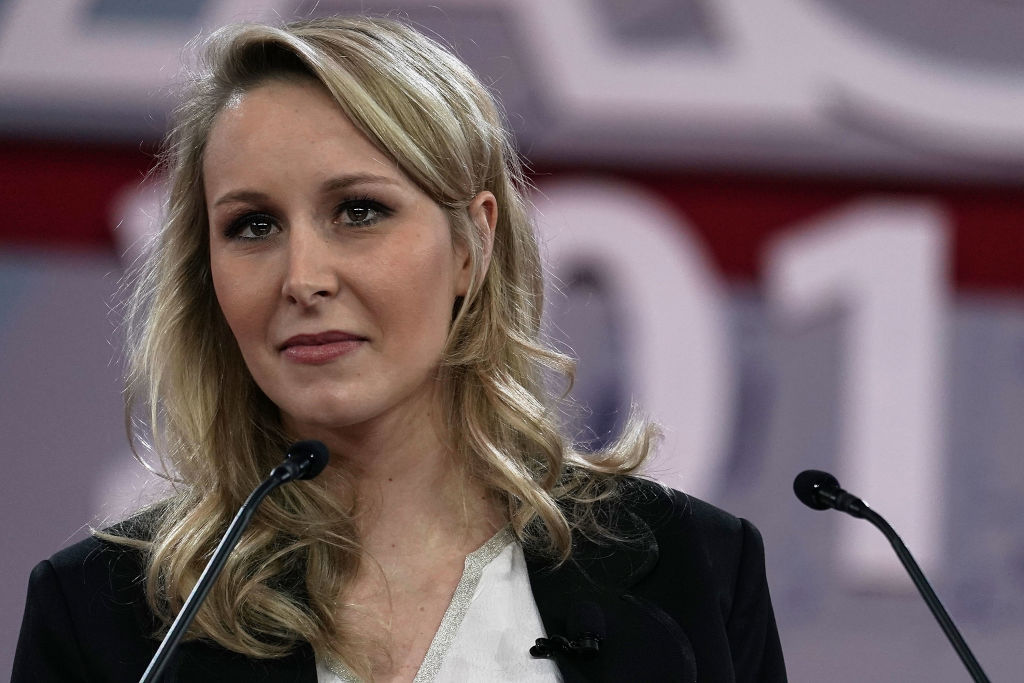There were two significant interviews on French television on Sunday evening. One featured Laurent Wauquiez, the erstwhile leader of the center-right Républicains, who fell on his sword after the disastrous performance of his party in the European elections.
Minutes before Wauquiez announced his resignation, Marion Maréchal gave her first major television interview since stepping down as a National Front MP in June 2017. The 29-year-old niece of Marine Le Pen has kept a low profile in the last two years, channeling her energy into the launch of her Political Sciences Institute in Lyon from where, as she explained to her host, she hopes will emerge ‘a new generation of political men and women’ to challenge what she described as today’s ‘conformism, groupthink and political correctness’.
Wauquiez broadly subscribed to that line of thinking but he lacked not just the charisma to make himself heard but also the fellow believers within his party. The Républicains have taken the same direction as Britain’s Conservatives in the 21st Century, a party that produces identikit Progressives with little in common with their core voters.
The Républicains will elect Wauquiez’s successor in the autumn but whoever they pick it won’t save them from destruction. The Républicains are finished. This week alone there have been a slew of resignations, the most prominent being Valérie Pécresse, a minister in Nicolas Sarkozy’s government. ‘In difficult times one doesn’t abandon the ship,’ was the response of one Républicain MP, Eric Ciotti.
One does if the ship is doomed, or, in the case of the Républicains, if it’s been hijacked by a band of centrists led by Macron, who has assumed command of their Progressive ideology. There remains only one position on the right to occupy, and that’s the one advocated by Marion Maréchal.
But not her aunt, who has alienated large swathes of the right. To some she is too gay-friendly, while others haven’t forgiven her declaration that Islam is compatible with the Republic. Many regard her economic policies as dangerously socialist. What’s more, Le Pen is too, well, old. She turns 51 this year, and where once maturity meant wisdom in French politics, now it suggests weakness.
This is particularly so for the far right, many of whose supporters are young. They pride themselves on belonging to ‘Generation Marion’ and they despise what they see as the selfish and soppy liberalism of Baby Boomers, particularly as they are often also Macron admirers. In last month’s European elections his LREM party scored best among the Over 65s, with 32 percent of their vote, compared to 15 percent of the young. The National Rally, on the other hand, polled strongest among the 25 to 65-year-olds.
These demographics should give Macron’s party pause for thought: because what comes after their president? The constitution limits him to two terms in office so the longest that he can remain in the Élysée is May 2027. Whatever one’s view on Macron, there is no denying he is a force of nature. The trouble is, for his supporters, there is no obvious successor; no one who comes close to matching his intellect, his drive and his chutzpah. It’s not beyond the realm of possibility to see LREM disintegrating once he departs, in much the same way New Labour died a quick death after Tony Blair relinquished the premiership.
Maréchal’s decision then is whether to challenge Macron in 2022, or wait another five years. She’ll be 37 at the 2027 election, two years younger than Macron when he was elected president, while Jordan Bardella, who led the National Rally to victory in the European elections, will be 31.
Bardella is an awkward opponent for Macron’s middle-class party; the son of working-class Italian immigrants, he was raised by his single mum on a housing estate in the Seine-Saint-Denis suburb of Paris. Nor does he share the same privileged upbringing as Maréchal but nonetheless they are cut from the same ideological cloth.
They are opposed to same-sex marriage, believe French identity is under attack from a coalition of Islamists and Progressives, and they see the division in society no longer as left and right but what Maréchal depicted on Sunday as ‘a new class struggle, which takes a more modern form: the winners of globalization against the losers, the metropolitans against the provinces’.
The pair complement one another but for the moment only one is actively involved in politics. Maréchal will surely return, and many commentators believe her television appearance on Sunday was the first step on the comeback trail. But there is growing unease with the National Rally that what she has in mind will not involve them, a feeling strengthened by Maréchal’s refusal to endorse the party in the run-up to the Euro elections, despite the pleas of her aunt.
‘It’s very positive that Marion has announced she’s available to offer her input, her vision, her analysis,’ said Stéphane Ravier, a veteran of the far-right party, ‘I simply hope that she doesn’t envisage doing it outside the National Rally.’
That’s their great fear, that when Maréchal calls for a ‘union of the right’, as she did on Sunday, she does indeed envisage a new party, all shiny and sleek and built for the social media age, just like LREM. ‘I consider that the National Rally is indispensable in political life but that, unfortunately, it’s not enough,’ explained Maréchal.
To be attractive to disenchanted LR voters (and their MPs, who Maréchal allegedly plans to win over), any new right-wing party will require her at its head. That will mean saying adieu to the aunt, who is unlikely to go quietly. Her dad didn’t, when his daughter decided he had outstayed his welcome, and so another family feud looms in the Le Pen household.
Maréchal will win out because she is far more popular, skilled and cunning than Le Pen, but the victory she covets most is the presidential election. Will it be 2022 or 2027?
This article was originally published on The Spectator’s UK website.


















